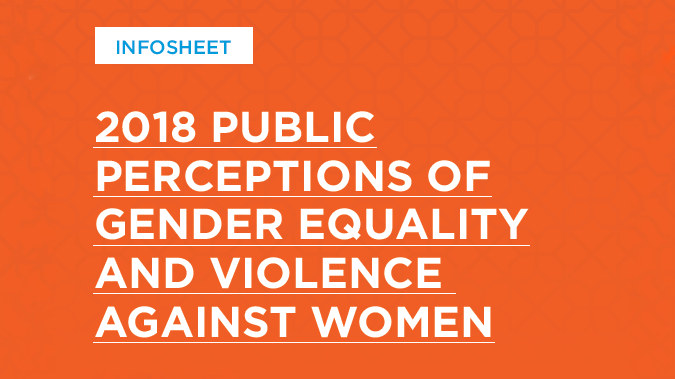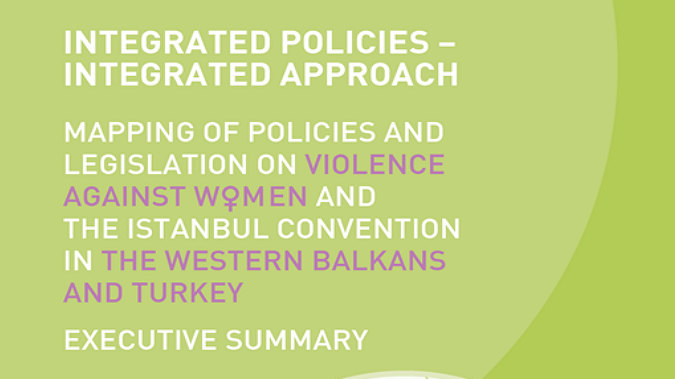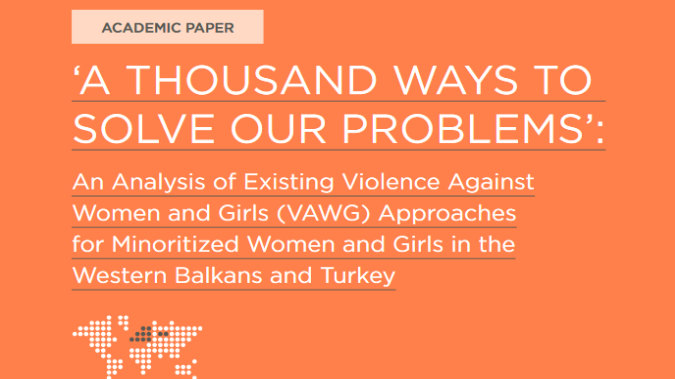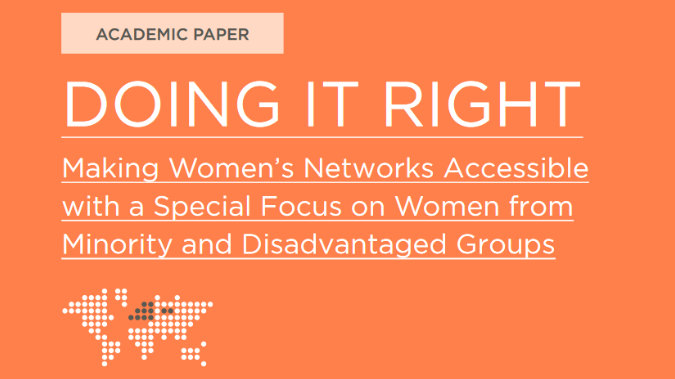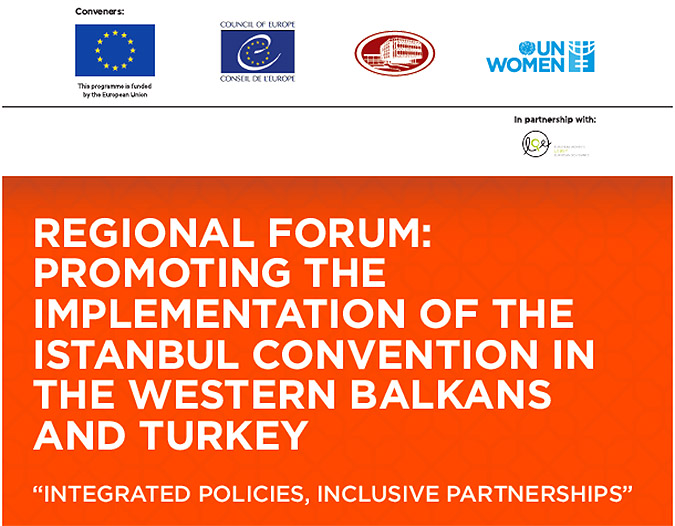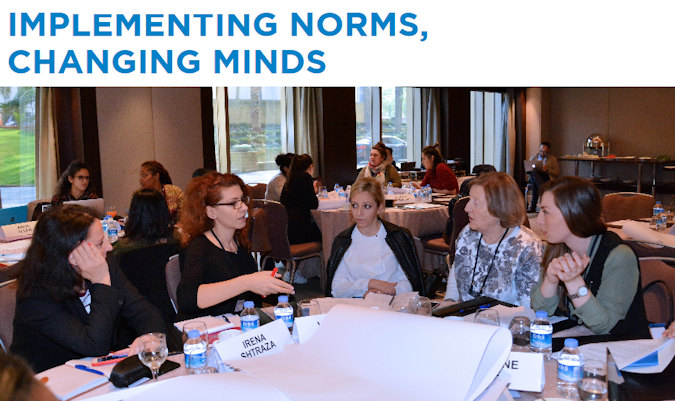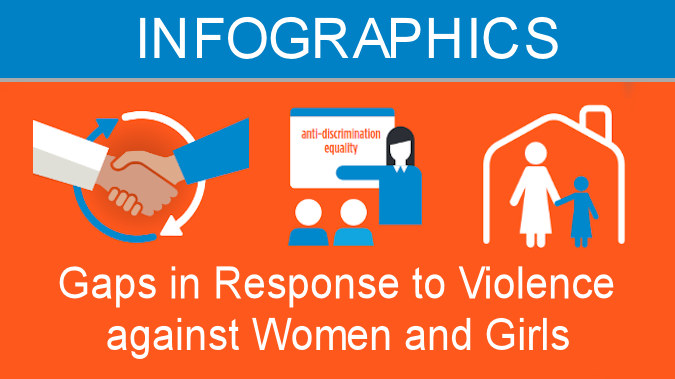Digital Library
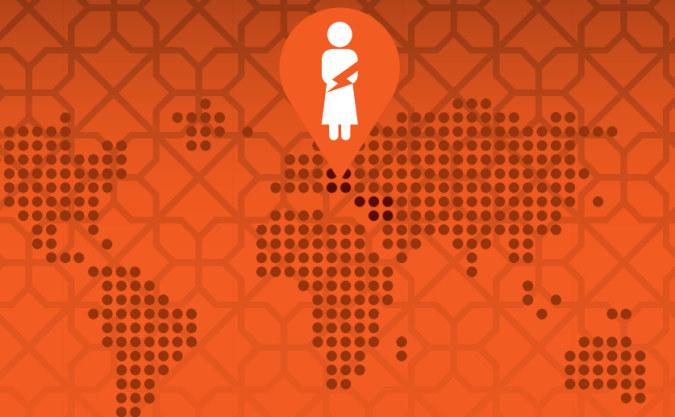
Infosheets | Reports | Newsletters | Videos | Infographics | Programme Brief
Infosheets
2018 Public Perceptions of Gender Equality and Violence Against Women in the Western Balkans and Turkey
The "2018 Public Perceptions of Gender Equality and Violence against Women" Infosheets provide insight of current and dominant attitudes and perceptions (and the factors that influence them) toward gender equality and violence against women at community level in the Western Balkans and Turkey. Check the infosheets here..
Reports
Integrated Policies – Integrated Approach Mapping of Policies and Legislation on Violence Against Women and the Istanbul Convention in the Western Balkans and Turkey - Executive Summary
This report produced by European Women’s Lobby under the EU-UN Women programme “Implementing Norms, Changing Minds” details the achievements and challenges, as well as good practices and lessons learned in the region in relation to the implementation of the IC and the Convention on the Elimination of All Forms of Discrimination Against Women (CEDAW). Read more.
‘A THOUSAND WAYS TO SOLVE OUR PROBLEMS’: An analysis of existing Violence Against Women and Girls (VAWG) approaches for minoritized women and girls in the Western Balkans and Turkey.
This report highlights the main challenges that ‘by and for’ women’s organizations across the Western Balkans and Turkey face in incorporating an intersectional approach, as well as in monitoring and reporting on Istanbul Convention implementation, monitoring and reporting to the Committee on the Elimination of All Forms of Discrimination against Women (CEDAW) and engaging with the EU accession process. Read more.
‘DOING IT RIGHT: Making women’s networks accessible with a special focus on women from minority and disadvantaged groups.
This report analyzes how to increase the accessibility of civil society networks, especially for women from minority and disadvantaged groups. Read more.
Regional Forum Promoting the Implementation of the Istanbul Convention in the Western Balkans and Turkey
This report presents a summary of the discussions held during the first Regional Forum on Promoting the Implementation of the Istanbul Convention in the Western Balkans and Turkey. Convened by the Government of the former Yugoslav Republic of Macedonia, UN Women, the European Union, and the Council of Europe (CoE), in partnership with European Women’s Lobby, the regional forum reviewed progress in fulfillment of the Council of Europe Convention on preventing and combating violence against women and domestic violence, known as the Istanbul Convention. Full report here.
Videos
This video explains the new regional initiative in the Western Balkans and Turkey developed with innovative approaches to address harmful gender stereotypes and combat violence against women and girls. Click here to see more videos.
Infographics - Gaps in Response to Violence Against Women and Girls
The infographics included in this package aim to present information drawn from a UN Women – Council of Europe conducted study about the gaps in support services for survivors of violence in the Western Balkans and Turkey. View all infographics.
Programme Brief
The three-year programme, ‘Implementing Norms, Changing Minds,’ funded by the European Union, aims at ending gender-based discrimination and violence against women in the Western Balkans ; Albania, Bosnia and Herzegovina, Kosovo [1], Serbia, the former Yugoslav Republic of Macedonia, Montenegro; and Turkey, with a particular focus on the most disadvantaged groups of women. The programme will strengthen women’s organizations capacity to hold governments to account, advocate for effective implementation, and monitor prevention of and response to violence against women. Beyond the full implementation of legislative frameworks, the programme also addresses structural causes of gender inequality – and one of its most pervasive expressions, violence against women – through a transformation of gender discriminatory stereotypes, perceptions and beliefs. Acknowledging the structural inequalities that lie at the intersection of gender and factors such as age, disability, ethnicity and nationality, the programme will place a strong emphasis on tackling multiple discrimination where gender aspects are involved.
-----------------------------------------------------------------------------------
[1] All references to Kosovo on this website shall be understood to be in full compliance with UN Security Council Resolution 1244 (1999).
